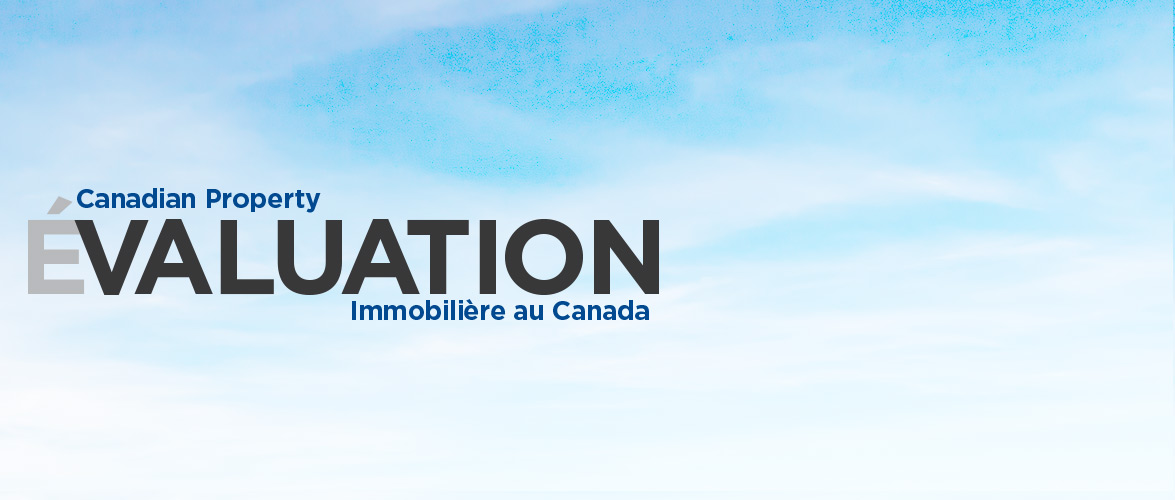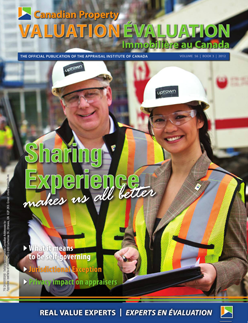Avoiding Mortgage Fraud is Everyone’s Business
Évaluation immobilière au Canada
Rechercher dans la bibliothèque en ligne
By Susan E Fowler, CFI
Is the two-story house on Sinclair Rd worth $800,000? Is there actually a house at #17 Woodside Lane? Has the price of the two-bedroom condo really increased by $100,000 since it was renovated?
By confirming property value and other property characteristics, appraisers play a critical role in loan adjudication. As Canada’s national housing agency, Canada Mortgage and Housing Corporation (CMHC) is committed to working with the industry to combat mortgage fraud. The most effective way to reduce fraud is for industry professionals to work cooperatively to stop mortgage fraud before the mortgage is approved.
When borrowers over-inflate property values or misrepresent information about their identity, income, employment, financial situation and the property, they commit mortgage fraud. Mortgage fraud is any false statement or omission made with the intention that it will be relied upon to obtain mortgage financing on terms that would not have been granted had accurate information been provided. In order to prevent fraud and misrepresentation, we must work together as an industry.
Mortgage applications require information from a number of sources, including the vendor, buyer, realtor, mortgage broker, lender, appraiser, lawyer and insurer. As industry professionals, we need to be on the lookout for inconsistencies, irregularities, unusual patterns or anything that appears out of the ordinary. Vigilance can go a long way towards identifying and preventing fraud.
For example, is the employment information being reported differently in different documents, such as bank statements, tax filings and mortgage applications? Is the borrower’s credit bureau report and credit utilization consistent with his or her occupation and reported earnings? Is the value of the property being purchased above the list price? Industry professionals should ask pointed questions and obtain additional documentation when they notice inconsistencies or unusual information. CMHC values the insight and expertise that appraisers bring to the initiation process through their experience in value assessment, knowledge of the neighbourhood and understanding of market trends.
Applications for CMHC Mortgage Loan Insurance suspected of misrepresentation are carefully reviewed by regional teams of specially trained residential underwriters. CMHC’s underwriters work with their fraud prevention counterparts in each of the lending institutions to verify documentation to ensure that the information being disclosed is accurate.
It is important for industry professionals to report all cases of suspected fraud to the appropriate authorities and to share information with industry partners. When fraud occurs, CMHC has an aggressive recovery strategy that is employed in all mortgage fraud claims and includes civil action and/or criminal charges when warranted. This approach is focussed on discouraging fraudsters from future attempts.
As a leader in fraud prevention, CMHC offers national fraud training and awareness initiatives and helps lenders enhance their internal fraud management programs and initiation procedures. CMHC has also funded and published fraud-related research.
CMHC supports a variety of industry initiatives like Fraud Prevention Month, an annual education and awareness campaign organized in March by a concerned group of private sector firms, consumer and volunteer groups, government agencies and law enforcement organizations who are committed to fighting fraud. Through these types of initiatives, CMHC is able to give homebuyers and homeowners, including newcomers to Canada, access to valuable information on how to protect themselves against mortgage fraud. CMHC offers content in Mandarin/Simplified Chinese, Punjabi, Urdu, Tagalog, Arabic and Spanish, in addition to English and French. This information is readily available on CMHC’s website at www.cmhc.ca (using the search key words ‘mortgage fraud’) or www.cmhc.ca/newcomers.
About the author
Susan E Fowler, CFI ® is Manager, Underwriting Risk Management at CMHC’s Ontario Singles Underwriting Centre. You can reach her at (416) 218-3432.





